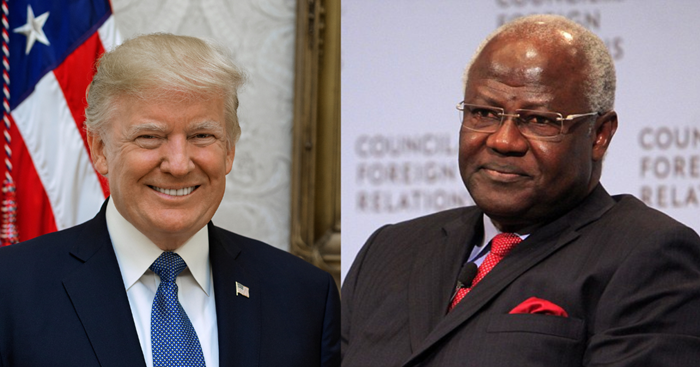Joseph Fitzgerald Kamara, the lawyer representing former President Ernest Bai Koroma, has drawn parallels between a recent U.S. Supreme Court decision regarding former President Donald Trump’s immunity and Koroma’s case in Sierra Leone.
Kamara argues that the U.S. ruling, which upheld Trump’s immunity for official acts, supports his assertion that Koroma’s actions, including the approval of a recapitalization loan for Rokel Bank and the payment of retirement benefits to Petroleum Directorate staff, were official acts protected by immunity.
Kamara criticized the Sierra Leone Court of Appeal’s decision, which ordered Koroma to repay $13 million related to the Rokel Bank recapitalization despite evidence that the bank had repaid the loan. He highlighted the bank’s current success and increased government capital shares as proof of Koroma’s sound decision-making.
Commenting on the U.S. Supreme Court’s divided ruling on Trump’s case, Kamara noted the split was along party lines, raising questions about the fairness and correctness of such judgments. He expressed concern that democracy is becoming a “hydra-headed monster” due to these partisan divisions.
Kamara, who previously served as Attorney General and Minister of Justice, reiterated that the 1991 Constitution of Sierra Leone grants immunity to the president for actions taken in office. He cited Section 48(4) of the constitution, which states: “While any person holds or performs the functions of president, no civil or criminal proceedings should be instituted or continued against him in respect of anything done in his private or official capacity.”
The case against Koroma, which has been closely followed since its initiation on October 13, 2020, reached a critical point on December 14, 2023, when the Sierra Leone Court of Appeal delivered its final judgment.
The court ruled unanimously that no legal provision in Sierra Leone grants absolute immunity to any individual, including the president. The ruling clarified that immunity does not protect against investigation and prosecution for gross misconduct, including corruption, committed during or after a president’s tenure.












Dis lawyer Joseph kamara, na dat make APC party not trust am for take dem elections petition to the Supreme Court.
Trump action was when he was still serving, Ernest has handed over power, and allowed with every entitlement. Up security guards. And instead of staying and defend himself, even with battery of lawyer, because he has the money. Up to date no one can quantify any serious job he did during 11yrs in office. This Joseph guy is a joke, in America judges, security officers can identify themselves with political party. Where in the laws Sierra Leone, that states that? Apart from Republicans seeking personal benefits, no one will deny that Trump is not a criminal.
U get luck na Maada Bio u meet up, because even Momoh or Tijan kabbah nor for don allow am for go in the first place.
JFK you have really proved himself to be one of the deceiving legal practitioners misleading the young ones and confusing the brainwashed illiterates . How could you parallel USA constitution and Sierra Leone construction?
This move alone shows that deceitful EBK is guilty . Just wait we will soon reach to the point.
Lawyer JFK, sorry for the unfortunate comparison. Salone does not have such immunity for thieves and criminals.
As a political luminary and a man who has followed both the Donald Trump and Ernest Koroma case closely. Both cases are not parallel. Former President, Ernest Bai Koroma is accused of treason (which is one of the most grievous offence someone will commit in Sierra Leone) while Donald Trump is not. Besides, he was not in office when the deed was done. The rule of law makes it very clear that no one is above the law.
However, there are exceptions 😆 even in the western world. I rest my case.
Is this the same lawyer who defended koromas action on sacking the former vp illegally?
No wonder my grandpa always told me that “lawyers have split-tongues now I understand
Mr JFk don’t let some of us pronounce you a failed and stupid lawyer. Have you read American Constitution because even here you find it difficult to understand our own constitution. If you do, how related are they. My friend if you have nothing to say or save that your EBK, stay put. Stop misleading the younger generation. Most eloquent lawyers speaks the law which is within the context not the one out of context. EBK will face the law you wait.
⁸⁸⁸⁸8⁸I